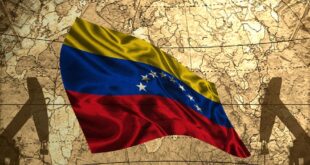Tehran is keen to open up its petrochemical industry to multinationals and propel foreign investment as it seeks to expand its foothold in the global petrochemical market.
Almost $40 billion worth of petrochemical projects are to be developed by the end of the sixth five-year economic development plan (2017-22). Unquestionably. we need foreign finance to attract this amount of capital and cannot solely rely on domestic funding. Oil Minister Bijan Namdar Zanganeh was quoted as saying by Shana on Saturday.
He made the statement on the sidelines of the 13th Iran Petrochemical Forum. the biggest annual event of the national petrochemical sector which has brought together representatives from 76 international and 385 domestic firms for two days in Tehran.
Zanganeh said Tehran is willing to promote direct foreign investment by offering incentives. such as inexpensive feedstock prices for the long term. Resources of the National Development Fund of Iran (NDFI) are insufficient to develop the petrochemical infrastructure.
The minister called on foreign investors to visit the port cities of Asalouyeh and Bandar-e-Emam Khomeini to see the developments in the last 15-20 years and gauge Iran`s industrial potential.
Asalouyeh. in Bushehr Province. is the largest energy hub in the country and supplies the bulk of Iran`s petrochemical output. Bandar-e -Emam is one of the busiest transit and shipping ports in the Persian Gulf.
Zanganeh implied that attracting foreign investments in the energy and other key sectors is intertwined with domestic political developments. namely the upcoming presidential polls that will be held on May 19.
The people will decide (on election day) whether or not they want foreign companies in Iran. he told the conferees.
President Hassan Rouhani`s government negotiated a historic agreement with the six world powers that led to easing international economic restrictions last year in exchange for limiting the disputed nuclear energy program.
The nuclear deal has allowed Iran to boost trade and exports and rebuild its struggling economy that was shut out of the global financial and trade system for years.
A New Era
Marzieh Shahdaei. head of the state-run National Petrochemical Company. told the forum on Saturday that Iran plans to produce 72 million tons of petrochemicals annually by the end of the current fiscal that ends in March 2018.
According to the NPC chief. Iran`s strategic location in the region. large hydrocarbon reserves. skilled domestic human resources and access to raw material as well as proximity to international waterways are among key factors attracting foreign firms to the petrochemical sector.
Asked about petrochemical sales data. she said companies produced 50 million tons of petrochemicals in the previous fiscal. of which 21 million tons. worth $9.4 billion. were shipped to international destinations and 29 million tons. worth $15 billion. sold in the domestic market.
Highlighting investments worth $3.4 billion in petrochemical ventures in 2016. Shahdaei said 11 petrochemical projects were launched last year and plans are in place to complete seven major projects by the yearend to raise nominal production capacity to 72 million tons.
The official believes that NPC should focus on the industry`s challenges and needs including sustainable use of hydrocarbons. especially natural gas. design competitive solutions. maximize investment returns and diversify and enrich the value chain with the help of state-of-the-art technology.
According to Shahdaei. introducing Iran’s petrochemical industry potential for growth. exploring means of expanding the industry’s mid- and downstream sectors via joint ventures and attraction of international finance can help reach the annual output capacity of 120 million tons by 2020.
Pointing to preliminary agreements on building petrochemical plants and transferring technology with international majors. including Germany`s BASF. Royal Dutch Shell and Japan`s Sojitz Corporation. Shahdaei noted A new era has started in Iran`s petrochemical industry.
In line with policies to complete the value chain in the petrochem sector. increase production of value-added commodities and develop new energy hubs in the region. 30 new projects are planned to be developed by the end of the sixth economic development plan. which requires billions of dollars in investments. a major part of which should come from foreign investors. she told the meeting.

 Iran Energy News Oil, Gas, Petrochemical and Energy Field Specialized Channel
Iran Energy News Oil, Gas, Petrochemical and Energy Field Specialized Channel



